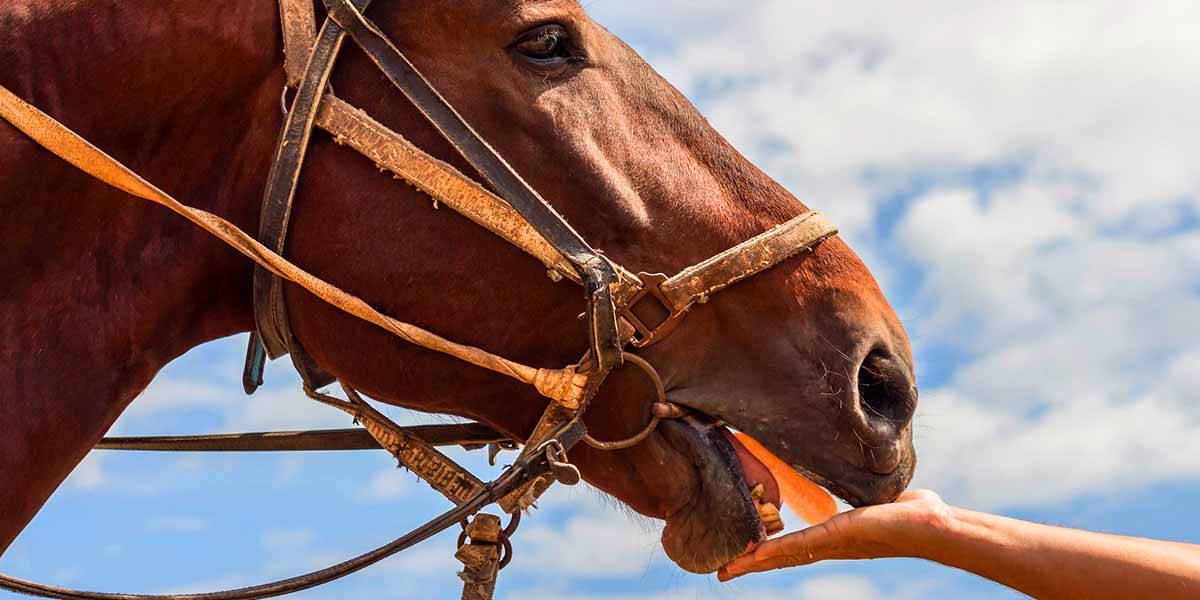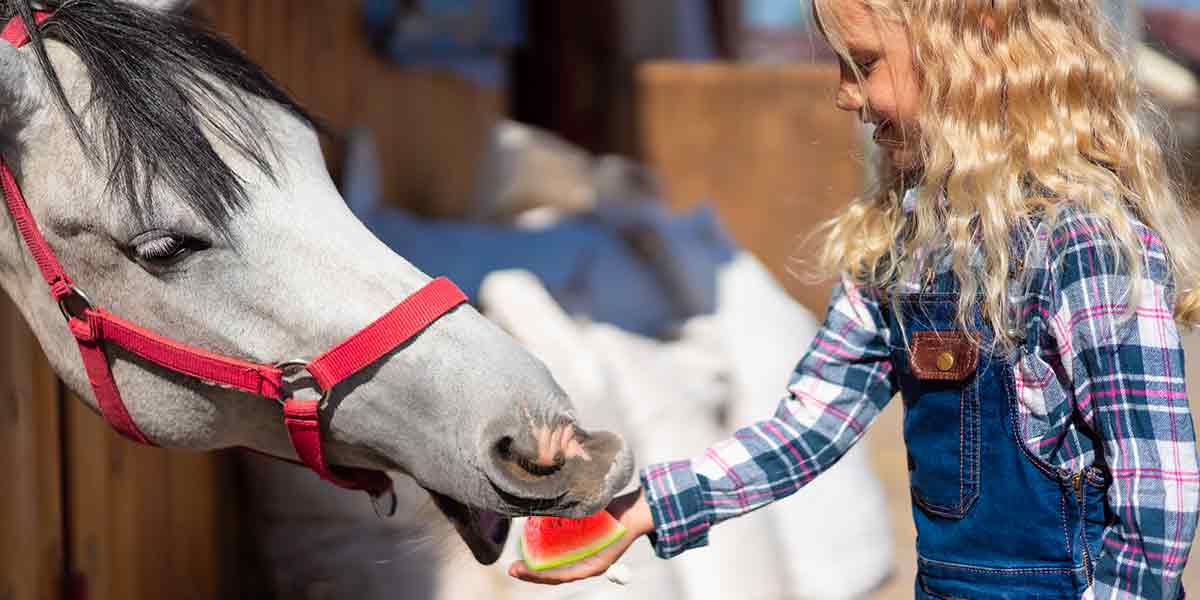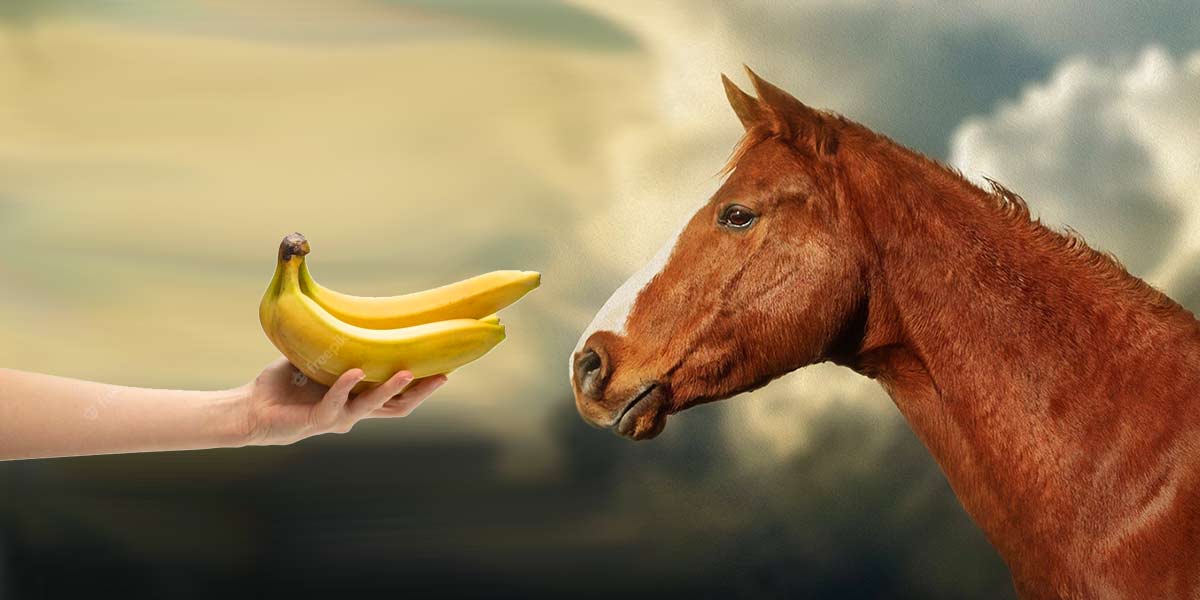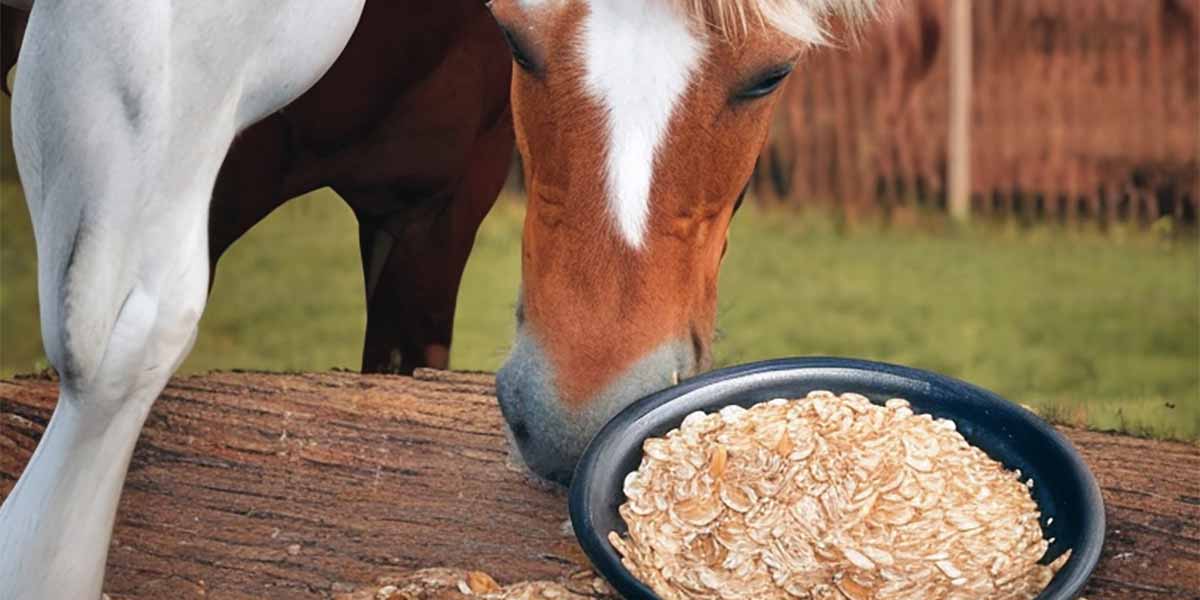Can I feed my horse carrots? I have always had a passion for horses, so it was no surprise to anyone when I decided to get one of my own. But before I could bring it home, I had to make sure that I had all the necessary supplies, including food.
As an affiliate, we earn from qualifying purchases. We get commissions for purchases made through links in this website’s posts from Amazon and other third parties.
As I was researching what I should feed my horse, I came across an interesting question: can I feed my horse carrots? I was intrigued by the fact that something so seemingly simple could have such a complicated answer. I felt the need to learn more about this topic and decided to embark on a journey to find the answer.
Searching if I can feed my horse carrots
I started by talking to experienced horse owners, talking to veterinarians, and researching online. I found out that there were both advantages and disadvantages to feeding horses carrots.
Carrots can be a great source of vitamins and minerals. But you should not give them to your horse in too large a quantity, as this can lead to digestive problems. Everyone knows also that you should give carrots as a supplement to their regular diet and never as a replacement.
My curiosity had been piqued and I was eager to learn more. I wanted to know the ins and outs of feeding carrots to horses and the best practices. I was determined to find out all I could on this subject and share my findings with others. So if you’re curious about whether you can feed your horse carrots, read on and find out more!
What are carrots and why are they a good food source for horses?
I recently learned why carrots are a great food source for horses. When I was researching feed options for my horse, I was surprised to see carrots on the list. After further research, I found out that carrots are great for horse nutrition and can even be a full meal for them.
What’s in carrots?
These vegetables come in various colors, but the most common colors are orange, yellow, and red. Carrots come with essential vitamins and minerals that horses need to stay healthy. Carrots are rich in vitamins A, C, K, B6, and Folate. They are also high in fiber and low in calories.
How carrots can benefit the horse
Carrots have numerous benefits for horses and someone can use them in a variety of ways. You can serve carrots fresh, cooked, or steamed, or even given as treats. Feeding carrots to horses regularly can help promote healthy eyesight, strong bones, and teeth, as well as healthy skin and coat. Carrots can also help with digestion and promote good bacteria in the gut.
Carrots can also help horses who suffer from boredom or stress. Giving them carrots as treats can help calm them and reduce stress levels. Carrots are also a great way to bond with your horse, so feeding them carrots can be a great way to show them love and affection.
All in all, carrots are a great food source for horses. They have essential vitamins and minerals and are low in calories. They can help promote healthy eyesight, strong bones, and teeth, as well as healthy skin and coat. Carrots are also a great way to bond with your horse and help reduce stress levels. So next time you’re looking for a food source for your horse, give carrots a try!
What types of carrots can horses eat?
As a horse-lover, one of the most important things I know is what types of carrots horses can eat. Carrots are an excellent source of nutrition for horses and can be a great supplement to their diet. But not all carrots are suitable for horses, so it’s important to be aware of the different types of carrots and what type of carrots are best for your horse.
Raw or cooked carrots are better for a horse?
When it comes to feeding horses carrots, the type of carrot you feed them matters. Horses can eat both raw and cooked carrots, but for the best digestion, raw carrots are the best option. Raw carrots are full of natural vitamins and minerals and are easy for horses to digest. If you’re feeding your horse cooked carrots, make sure they’re cooked until soft and do not feed them in large pieces as this may cause digestive issues.
Types of carrots to feed a horse
The type of carrots you feed your horse also matters. Mini carrots are an excellent choice for horses because their smaller size makes them easier to digest. Regular-sized carrots can be a good option as well but you should cut them into smaller pieces before feeding. Baby carrots are also a good treat for a horse.
How much carrot should I feed my horse?
I can remember the first time I saw my mom feeding a horse carrots. She was so excited because she had always wanted to own a horse, and now she could care for it and give it treats. She knew that horses could eat carrots, but she wasn’t sure how much to feed them. That’s when I started to research how much of a carrot a horse can eat.
It’s important to be aware of the number of carrots you’re feeding your horse. Carrots should only be given as a treat and not as a meal replacement. Too much carrot can cause digestive issues, so it’s important to only feed your horse in small amounts.
It turns out that the number of carrots you can feed a horse will depend on factors like the horse’s size, age, and health. For example, a smaller or younger horse will need fewer carrots than an adult, large horse. Additionally, a horse’s health should also be taken into consideration. If the horse has any health problems, the number of carrots it can consume should be reduced.
As a general rule of thumb, you can feed your horse, on average, up to one-quarter of a carrot per day. This should be divided into two equal meals: one in the morning, and one in the evening. This will help ensure that your horse gets its daily nutritional requirement, and it won’t be over-feeding.
Keep your horse well fed
In addition to their nutritional value, carrots are an excellent source of vitamins A, C, and K. They are also filled with dietary fiber, folate, and potassium. These elements can help improve your horse’s overall health, as well as its immune system.
Feeding your horse carrots is an easy way to show that you care. But it’s important to remember that you should only do so in moderation. Too many carrots can cause health problems, so be sure to follow the recommended amount. With the right amount of carrots, your horse will be healthy and happy!
Overall, carrots are a great supplement to your horse’s diet but it’s important to be aware of the type of carrot you’re feeding them and the amount you’re giving them. Stick to raw carrots in small amounts and your horse will reap the benefits of this delicious and nutritious treat.
What are the risks of feeding a horse carrots?
As an avid horse rider, I understand the importance of feeding my horse healthy food for optimal nutrition and well-being. Carrots are a popular snack for equines, however, feeding a horse carrots can be risky if not done properly.
Carrots are high in sugar
These vegetables are high in sugar and can cause an imbalance in a horse’s diet, leading to colic, laminitis, and other digestive issues.
Overfeeding carrots can lead to an excess intake of sugar
Additionally, while carrots are a natural source of fiber, they are not a substitute for hay or other roughage in a horse’s diet. If carrots are fed too often or in too large of quantities, it can lead to an excess intake of sugar, which can cause digestive system issues.
The sugar contained in carrots can lead to weight gain
The sugar content of carrots can also lead to weight gain, so it’s important to make sure the horse is getting enough exercise and not consuming more calories than they are burning.
Carrots can become sometimes addictive
Another risk of feeding a horse carrots is that horses can develop a taste for them, making it difficult to get them to eat hay or other roughage. Carrots should be fed in moderation, with the horse’s regular diet being the primary source of nutrition.
Get the right size of carrots
Finally, it is important to consider the size and shape of the carrots you are feeding your horse. Carrots that are too large can pose a choking hazard, and small pieces can be swallowed without the horse being able to chew them properly, leading to the risk of blockages. It is best to feed carrots that have been cut into small pieces and to always monitor your horse while they are eating.
In conclusion, it is important to consider the risks when feeding a horse carrots. While carrots can be a healthy treat in moderation, it is important to ensure that the horse is getting a balanced diet and that the carrots are not bigger than they can safely chew.
How to properly prepare carrots for horses?
Feeding carrots to horses can be a great way to give them a treat or supplement their diet. But, it’s important to properly prepare carrots before giving them to your horse. Here are some simple steps to help you feed your horse carrots the right way.
Wash, peel, and cut in small pieces the carrots
First, wash the carrots thoroughly to remove any dirt or bacteria. Then, peel the carrots, as the skin can be difficult for horses to digest. After you’ve peeled the carrots, cut them into small pieces, making sure to avoid any large chunks as these can be a choking hazard. If you have a large horse, you may want to cut the carrots into even smaller pieces.
Cook properly the carrots
Next, you’ll need to cook the carrots before feeding them to your horse. Boiling the carrots is the safest method, as it reduces the risk of food poisoning. Boil the carrots until they’re soft, but not too soft. Overcooked carrots can be difficult for horses to digest.
Watch your horse while it eats the carrots
Finally, once the carrots have cooled down, you can feed them to your horse. Be sure to watch your horse while it eats the carrots, as it may try to swallow them whole. It’s also important to monitor how much your horse is eating, as too many carrots can lead to digestive issues.
By following these simple steps, you can ensure that you’re feeding your horse carrots in the safest and most nutritious way possible. Carrots are a great treat for horses. But it’s important to remember to properly prepare them before feeding them to your horse.
How to feed properly your horse carrots
When it comes to feeding treats to horses, carrots are a popular option. Carrots are a healthy and nutritious treat for horses, and they are likely to enjoy them. However, for safety reasons, it is important to ensure that you properly prepare your horse to accept carrots as a treat. To do this, it is necessary to introduce your horse to the sight, smell, and feel of carrots. But in a safe and controlled manner too.
Preparing your horse to accept carrots
The first step in preparing your horse to accept carrots is to get it used to the smell and feel of them. You can do this by rubbing a carrot along the length of your horse’s neck, or by placing one in their feed bucket. Doing this regularly will help your horse become more comfortable with carrots. And also will help them learn to accept them as a treat. It is important to note that you should never force your horse to eat a carrot. This can create a negative association with the treat.
When your horse is more comfortable with the smell and feel of carrots, you can begin to introduce them as a treat. Start by offering small pieces of carrot, and gradually increase the size. When providing the carrot, make sure to do it in a calm and controlled manner, and ensure that the horse is properly supervised. Doing this will help your horse build a positive association with carrots. In that way, you will ensure that they are safe and enjoyable treats for your horse.
Watch the next video to find out what the veterinarian Dr. Gray says about feeding carrots to horses:
Overall, introducing your horse to carrots in a safe and controlled manner is essential for ensuring that they are comfortable with the treat. By getting your horse to feel comfortable with the smell and feel of carrots first, and then gradually introducing them as a treat, you can help ensure that your horse enjoys carrots as a safe and nutritious snack.
The right way to offer your horse carrots
Feeding carrots to your horse is a great way to provide them with a healthy snack, while also building your relationship with them. To ensure your horse gets the most out of the experience, it’s important to offer the carrots correctly. Doing it the right way will not only make sure your horse gets the most out of its snack, but it will also help to strengthen the bond between the two of you.
How to approach your horse
When you are ready to offer your horse carrots, the first step is to approach them quietly and calmly. Speak to them in a low, soothing voice, and make sure you maintain eye contact. This will help your horse to focus their attention on you and the carrots. It’s also important to make sure your horse is in a relaxed frame of mind and that its posture is comfortable. If they seem tense or stressed, it’s best to wait until they are calm before offering the carrots.
Offer the carrots when the horse is accepting them
Once you have your horse’s attention and the animal is in peace, you can offer the carrots. It’s best to hold the carrots in an open palm, so your horse can see them. You should also make sure your hand is steady and that you don’t move it too quickly. This will help to ensure your horse doesn’t become startled by sudden movements.
Finally, it’s important to be patient and take your time. If your horse isn’t interested in the carrots initially, take a break and try again a few minutes later. With the right approach and patience, you can create a positive experience for both you and your horse every time you feed them carrots.
Monitor your horse’s reaction when eating the carrots and how to respond if it doesn’t react positively
Monitoring your horse’s reaction to carrots is an important step in making sure they are receiving proper nutrition. Carrots are a common treat for horses, providing them with a source of nutrition and a reward for good behavior. It is important to monitor your horse’s response to carrots and make sure they are not having an adverse reaction. If your horse seems to be avoiding carrots, or the smell or texture of them, it is important to respond to that.
Watch carefully your horse’s body language
One way to monitor your horse’s reaction is to watch its body language. If they seem hesitant or scared around carrots, it may be a sign that they are not comfortable with them. Additionally, you should pay attention to their eating habits. Does your horse tend to eat around the carrots rather than consuming them? It could be a sign that they are not enjoying the food. If there is any sign of discomfort or aversion to carrots, it is important to take steps to address the issue.
Finally, it is important to try different methods of feeding carrots to your horse. You can try slicing them into smaller pieces or even offering them as part of a meal. If your horse continues to show a negative reaction to carrots, it may be a sign that they are not the right type of treat for them. In this case, it is important to work with your veterinarian or equine nutritionist to determine the best food for your horse. By monitoring your horse’s reaction to carrots, you can ensure that they are receiving the proper nutrition and treatment.
How to incorporate carrots into a horse’s diet
As a horse lover, I understand how important it is to provide a horse with a balanced and nutritious diet. Carrots are a great addition to this diet, as they contain a variety of essential vitamins and minerals that can benefit your horse’s overall health and well-being. Feeding your horse carrots is an easy and cost-effective way to make sure they’re getting the nutrients they need.
When it comes to incorporating carrots into my horse’s diet, there are a few different ways to go about it. The most common way is to feed them as snacks throughout the day. I like to feed my horse carrots in small, bite-sized pieces so it can easily chew and digest them. I also like to pair carrots with other healthy snacks like apples or bananas to encourage my horse to eat them.
You can introduce carrots to the horse in hay cubes or pellet feeds
Carrots can also be included in hay cubes or pellet feeds. Adding a few carrots to the feed can provide a great source of added nutrients for your horse. Carrots can also be grated or chopped and added to your horse’s regular feed. This is a great option for horses who may be picky eaters or who don’t enjoy the taste or texture of carrots.
Finally, you can add carrots to your horse’s diet in the form of supplements. Many equine supplements contain carrots as an ingredient, so it’s easy to find a supplement that meets your horse’s specific nutritional needs. If you’re unsure which supplement is best for your horse, it’s always a good idea to consult with your veterinarian.
Incorporating carrots into your horse’s diet can be a great way to add essential vitamins and minerals to their daily intake. Whether you choose to feed carrots as snacks, add them to hay cubes, or include them in your horse’s feed, it’s important to make sure that you’re providing your horse with the right amount of nutrients. With a little bit of research and some careful planning, you can easily incorporate carrots into your horse’s diet and ensure that they’re getting the nutrition they need.
Conclusion
I always smile as I watch a horse munch on the carrots. I felt a great sense of satisfaction that I was able to bring joy and health to my horse. And in such a simple way! I was reminded of how much I care for him and that I would do anything to keep him happy. I gently ran my hand down his neck and whispered how much I appreciate him.
As I walked away, I knew I had created a bond between us that would last a lifetime. I knew that my horse would always be there for me, just as I would always be there for him.






